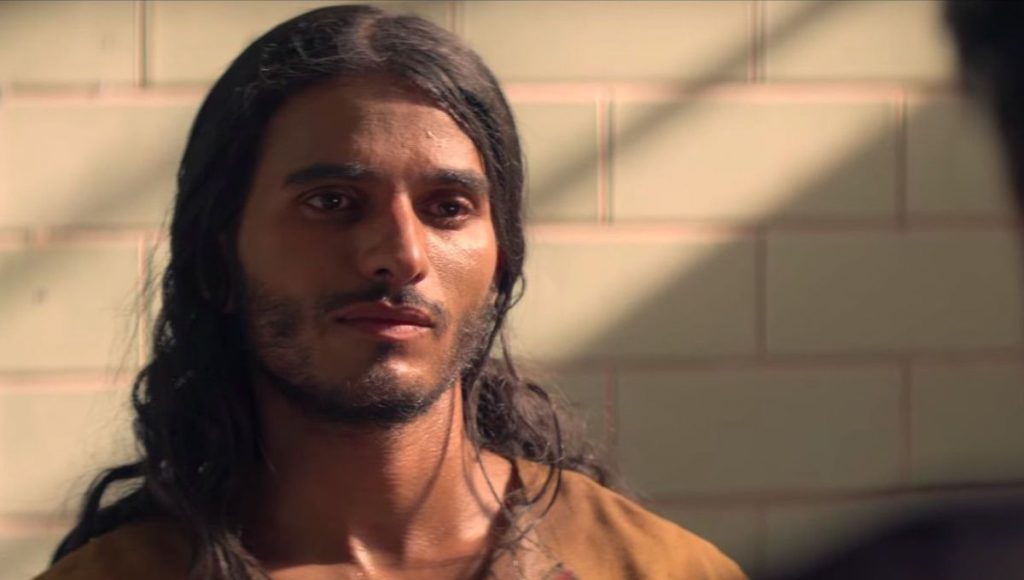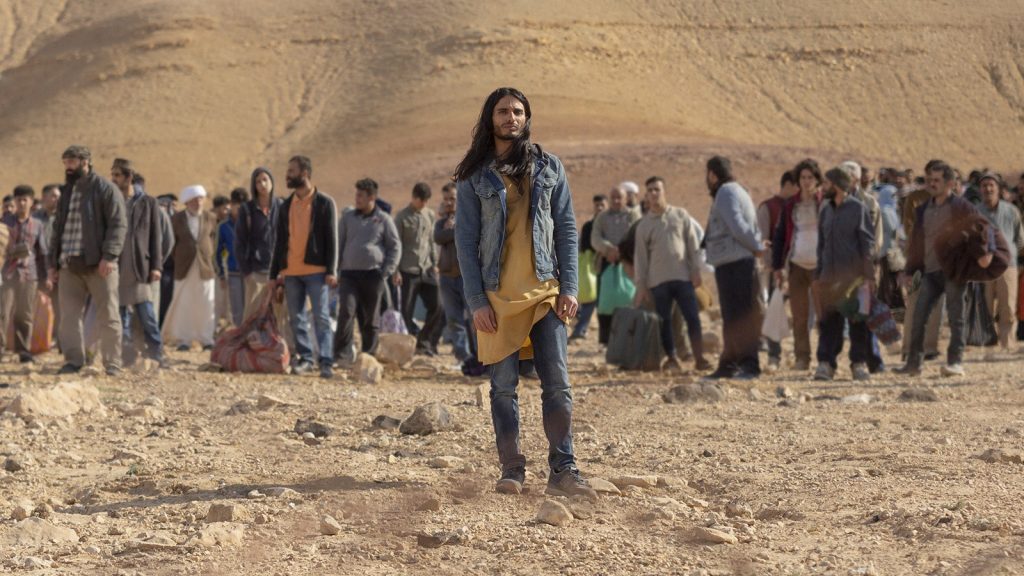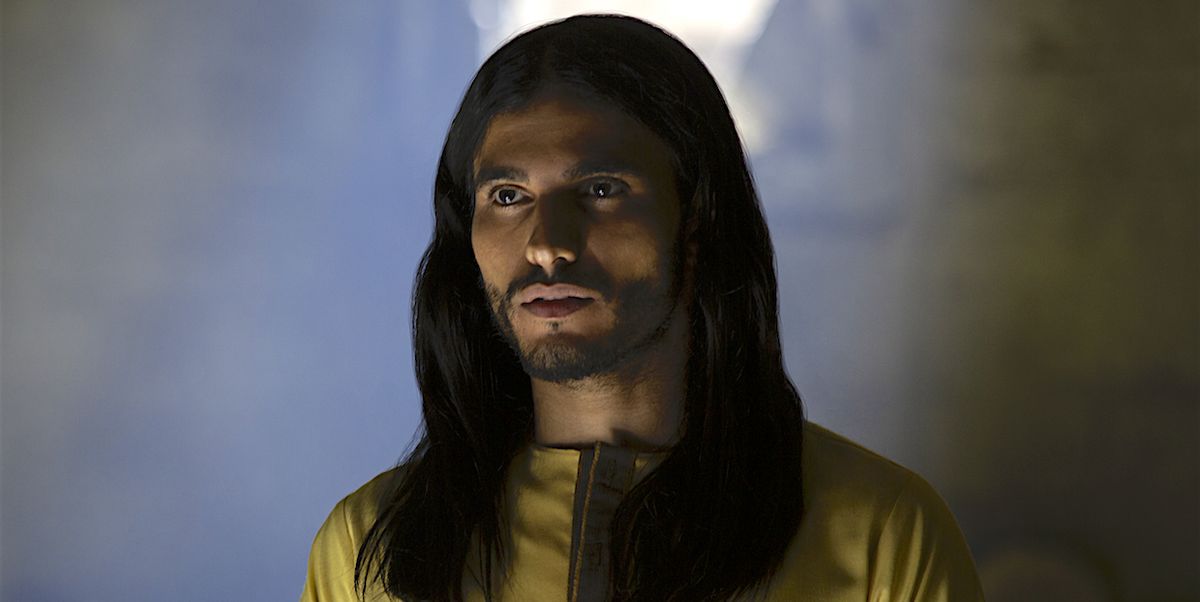Netflix’s ‘Messiah’ is a geopolitical suspense thriller with a religious twist that centers around a man claiming to be the messenger of God; the second coming. It raises pertinent questions on issues surrounding faith, religion, borders, and politics with its multi-layered, multicultural narratives. More importantly, it makes you question beliefs and why one believes them. This gets a lot more complex in the current times, where social media continues to reign, and “fake news” surrounds us.
But is ‘Messiah’ based on a true story? To answer it simply, it is not based on true events, but it does portray the reality of our times. It is also inspired by concepts and stories from both the Bible and the Quran, along with perhaps a real-life tragedy that it makes references to. Here’s everything we know about it.
The Second Coming
The second coming of Jesus or Isa is a concept spoken about in both the Bible and the Quran. It is written about in the Book of Revelations, the final book of the Bible. According to it, Jesus will come back to judge mankind, for the “Last Judgement”. It will lead to the consummation of the universe, mankind and salvation, and mark the beginning of a millenium.
Just like the New Testament, the Quran also describes Jesus as the Messiah, known as al-Massih (hence the name of the series), and believes that he was born of a virgin, performed miracles, was accompanied by disciples, and was raised to heaven. But it does not believe he was crucified or the son of God, and instead treats him as a prophet. The Quran also believes that Isa/Jesus would return someday and fight a war against evil to establish peace on earth.
Al Massih ad Dajjal or the Antichrist

Interestingly, both the Quran and the Bible also believe that there will be a great deception before the Second Coming of Jesus/Isa in the form of a false prophet. He is considered the Antichrist in Christianity and called al Masih ad-Dajjal (the deceiving Messiah) in Islam – an evil figure who will impersonate the Messiah and lure many. In Matthew 24 of the New Testament, Jesus states: “False messiahs and false prophets will arise, and they will perform signs and wonders so great as to deceive, if that were possible, even the elect.”
Similarly, in Islam, Jesus is said to return during the war, where he will fight alongside Mahdi to destroy the Dajjal. Now, what becomes interesting is that Jesus is said to descend in the east of Damascus, dressed in yellow robes. All of this makes a lot of sense in ‘Messiah’, as Al Massih shows up for the first time in Damascus wearing yellow robes where he preaches as a sandstorm begins, leading to an end to the siege of the city, and in many ways establishing peace. He also performs miracles, brings a boy back to life, and walks on water.
But of course, it gets trickier and more interesting because this is not entirely the case. As the show progresses, we learn that he could really be a great deceiver. The man also has a legitimate human past and a probable mental disorder. What also makes sense is that the Dajjal is believed to have arrived somewhere in the East in and around Syria, just as Al Massih does. This would make sense in relation to the several people on the internet who have commented on the controversial premise of the show as they believe it deals with the false prophet.
Waco Tragedy
‘Messiah’ makes references to the Waco tragedy in its sixth episode, where things begin to get out of hand in Dilley, Texas, and Al Massih decides to leave, as thousands follow. The tragedy, also known as the Waco siege, took place in 1993 due to a government raid that led to a 51-day-long standoff between the FBI and members of a millennial Christian sect, Branch Davidians. The siege ended tragically with over 75 deaths as a massive fire erupted.
David Koresh was the leader of the sect, who claimed that he was the Messiah, that he could talk to God and unlock the Seven Seals in the Book of Revelation. He was considered the “Lamb of God” and was apparently preparing his people for the apocalypse.
Koresh had a strong following and lived with them in Mount Carmel. But outside the sect, people were both skeptical and critical of him. The government raid took place after certain reports surfaced that Koresh had been sexually abusing minors and stocking weapons illegally. As the FBI raided, an open firing took place from both ends, resulting in a gunfight. Of course, the government did not handle the situation very well as it all ultimately led to dozens of deaths including women and children.
Now, this connects directly to ‘Messiah’ in several ways. Despite not knowing whether or not Al Massih is real, it becomes clear that blind faith results in the deaths of the innocent. It also connects to what Eva Geller speaks of when she tries to connect the dots with why Massih chose Texas. She states that it is because Texas is a small town, with poverty and weapons, and where people strongly believe in the Bible and all that it says. It won’t be a far stretch to believe that the show’s creators had similar thoughts in mind when they decided to have part of the story set in Texas.
Palestinian Refugees and the Syrian Crisis

The Palestinian refugees and the Syrian crisis plays a primary role in ‘Messiah’, especially in the first half of the series. This is refreshing to watch and learn more about as very few mainstream shows have discussed the issue at such length. The series borrows from the real events taking place in Syria currently, and the relationship the displaced Palestinian refugees share with Israel.
The Israeli-Palestinian conflict is one of the world’s longest-running and most tragic conflicts that began due to the 1948 war, which led to the creation of Israel and the ultimate displacement of Palestinians who do not have a state that is recognized. They eventually sought refuge in other Arab countries, including Syria.
However, the ongoing Syrian civil war caused significant demographic changes, as organizations like ISIL (Islamic State of Iraq and the Levant) sieged its cities and had them fall to the caliphate. This, in many ways, led to several thousand Syrians, including Palestinians, being driven out of the country. Damascus was one of the most affected cities in Syria. All of this is visually portrayed in the pilot episode of ‘Messiah,’ and later episodes deal with the aftermath of the displaced Palestinians.
It is through these multilayered, multicultural narratives of both faith and politics that ‘Messiah’ creates a fictional world that is dripping with truth and reality. The show, with its portrayal of the refugee crisis, its ethnically diverse characters, and of course, its relevance to real life events manages to stay grounded and balanced despite its audacious premise.
Read More: Where Was Messiah Filmed?


You must be logged in to post a comment.